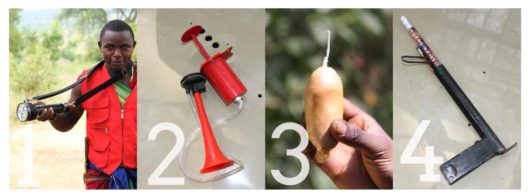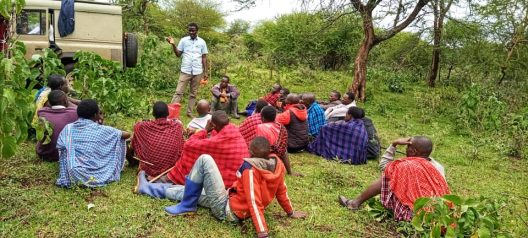In December 2020 a village member called Mjomba Soinge was herding his livestock home when he came across an elephant, it chased him and unfortunately caught up with him and trampled him. He survived.
He was rushed to hospital and admitted with a potential medical bill of around $2000. Randilen Wildlife Management Area swiftly responded to this tragedy and helped raise funds to pay all of the medical expenses and Honeyguide immediately covered half of the bill. As communities have accepted to conserve their natural habitat and rangelands and protect wildlife, the wildlife numbers are increasing, and this is leading to more human-wildlife conflict.
More elephants have been lost to retaliatory killing than to poaching between 2013 and 2016 in the Tarangire ecosystem. Elephants frequently raid maize farms during the crop-growing season between April and August and farmers can lose up to 70 percent of their crops to elephant raids in a single night and frequently respond by killing elephants.

In 2015, Randilen started to use a crop protection toolkit (flashlight, horn, and chili cracker) that reduced crop damage by 90 percent. These efforts have helped to secure the community trust for Randilen as a conservation initiative and has resulted in zero retaliatory attacks on wildlife by the community since 2016.
Lemuta Meng’oru, Honeyguides’ crop protection expert has recently trained 200 community members from the eight-member villages in Randilen on how to use the crop protection toolkit and protect their crops.

Randilen aim to scale up thier community’s ability to fend elephants from eating their crop by increasing the crop protection teams as well as increasing the effectiveness of the existing teams. For these teams to be successful at moving elephants away from the farms consistently, it is important that the toolkits are used in a specific sequence to improve the effectiveness and reduce the costs. In 2020 Radnilen had 55 teams to protect the community farms but due to the increase of elephant raids in 2020, the Randilen has added 28 more crop protection teams bringing the total to 83 teams.

